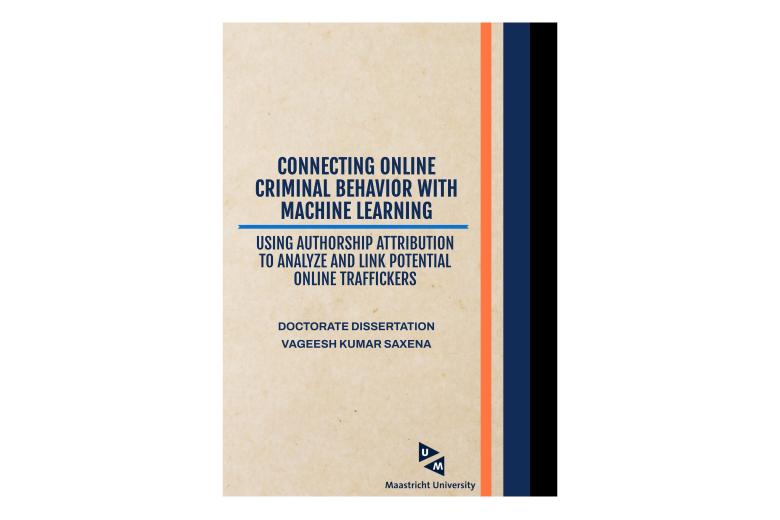Do heatwaves affect the jobs we choose?
At a time when climate change makes them more essential than ever, qualified workers such as solar-panel installers and insulation specialists are in increasingly short supply. One reason for this imbalance may be that warmer weather affects our choice of job, says Dr Nico Pestel, associate professor at the Maastricht University Research Centre for Education and the Labour Market (ROA). He is currently investigating how heat affects career choices. As the weather becomes more extreme, will we see more people opting for desk jobs?
Paradox
“There are serious labour shortages in industries that are critical to reducing carbon emissions, from solar-panels installers and insulation specialists to construction workers in general,” Pestel says. Therein lies the paradox. “These workers are crucial in the fight against climate change, and yet climate change may be partly causing the shortages. After all, these types of jobs involve outdoor work and are often physically demanding. Heat makes them a less attractive career choice.”
There are serious labour shortages in industries that are critical to a successful energy transition. Weather conditions may play a role in this.
How weather affects career choices
Supported by a grant from the Dutch Research Council (NWO), Pestel has just begun a study on the impact of heat and heatwaves on the choice for jobs that involve frequent sun exposure. It was inspired by previous research on the effect of the weather on car-purchasing decisions. “Buying a car is a long-term decision that shouldn’t be affected by the weather on the day of purchase. But the study showed that’s exactly what happens—the day’s weather influences what car you buy.”
Pestel was curious to know if the same holds for job choices. “Choosing a career is also a long-term decision. You can change careers, but it’s not always easy. I wanted to find out if career choices are influenced by experiencing a heatwave or ‘heat shock’—one or two days of extremely hot weather, which will become more and more common as the climate changes. Presumably, career decision-making isn’t just affected by the weather at the time of the decision, but also by the expectation of experiencing more heat shocks in the future.”
Economics and climate change
Pestel is one of few economists whose research has taken climate change into account since the beginning of his career. He even wrote a paper entitled, “Why do relatively few economists work on climate change?” His conclusion was that economists see climate change primarily as a topic for the natural sciences. In his view, economists have a key role to play in climate-related issues.
“Climate scientists have given us a clear picture of the problem and set out various scenarios if we do or don’t reach certain targets”, he explains. “It’s now up to social scientists and economists to come up with solutions. How can we reduce carbon emissions as efficiently as possible? There’s an economic side to that question; should we introduce a carbon tax, for example, or put a price on carbon emissions?”
First of its kind
To Pestel’s knowledge, his study is the first to explore the specific relationship between heat and career choices. He recently submitted a data request to Statistics Netherlands (CBS). “I want to compare microdata on the work history of individuals in the Netherlands with information about weather conditions by municipality. In or following a year with a severe heatwave, do more people in certain professions switch to jobs that are less affected by heat?”
Pestel will also examine whether the decisions young people make on their further education and training are influenced by weather conditions. “If a heatwave hits when you’re considering your options after high school, does that discourage you from becoming, say, a roofer? That’s what I want to find out.”
What is his preliminary hypothesis? “I expect to find that people who have just experienced a heatwave are less likely to aim for a physically demanding, outdoor profession. I think they’ll be more likely to opt for a desk job.”
I expect to find that people who have just experienced a heatwave are more likely to opt for a desk job.
- Nico Pestel
Policy implications
Pestel is motivated by the potential policy implications of the research. “Certain professions are essential for a successful energy transition. My results will help policymakers decide whether and how these jobs can be made more attractive.”
The study is also of academic interest. “There’s a lot of interest in human decision making. The findings will shed light on how people make career choices and the extent to which they’re influenced by external factors. This is also good to know when it comes to other decision-making processes.”
Expectations for the future
Despite the labour shortages in essential industries, Pestel hasn’t given up hope for the future. “How the situation will develop depends on all kinds of factors. Yes, there are major labour shortages in the Netherlands in occupations that are essential for the energy transition. But there are steps we can take to rectify them. On the demand side, we need to think about how we can make these jobs more attractive by raising wages or improving employment conditions. On the supply side, we should look into ways to intrinsically motivate young people to choose technical careers where they can help combat climate change. It can be very fulfilling to know that you’re contributing to that effort. That way we may be able to both overcome the labour shortages and stand stronger in the fight against climate change.”
Text: Romy Veul
Also read
-
Costas Papadopoulos awarded Open Science NL grant
€1.5 million for Open Science Digital Infrastructure for 3D Scholarship
-
AI and the Future of Tax Law: Rethinking Compliance, Governance, and Legal Design
On 17-18 December 2025, the Maastricht Centre for Taxation hosted an international online conference titled “AI and the Future of Tax Law: Rethinking Compliance, Governance, and Legal Design”.
-
Connecting Online Criminal Behavior with Machine Learning: Using Authorship Attribution to Analyze and Link Potential Online Traffickers
PhD thesis by Vageesh Saxena